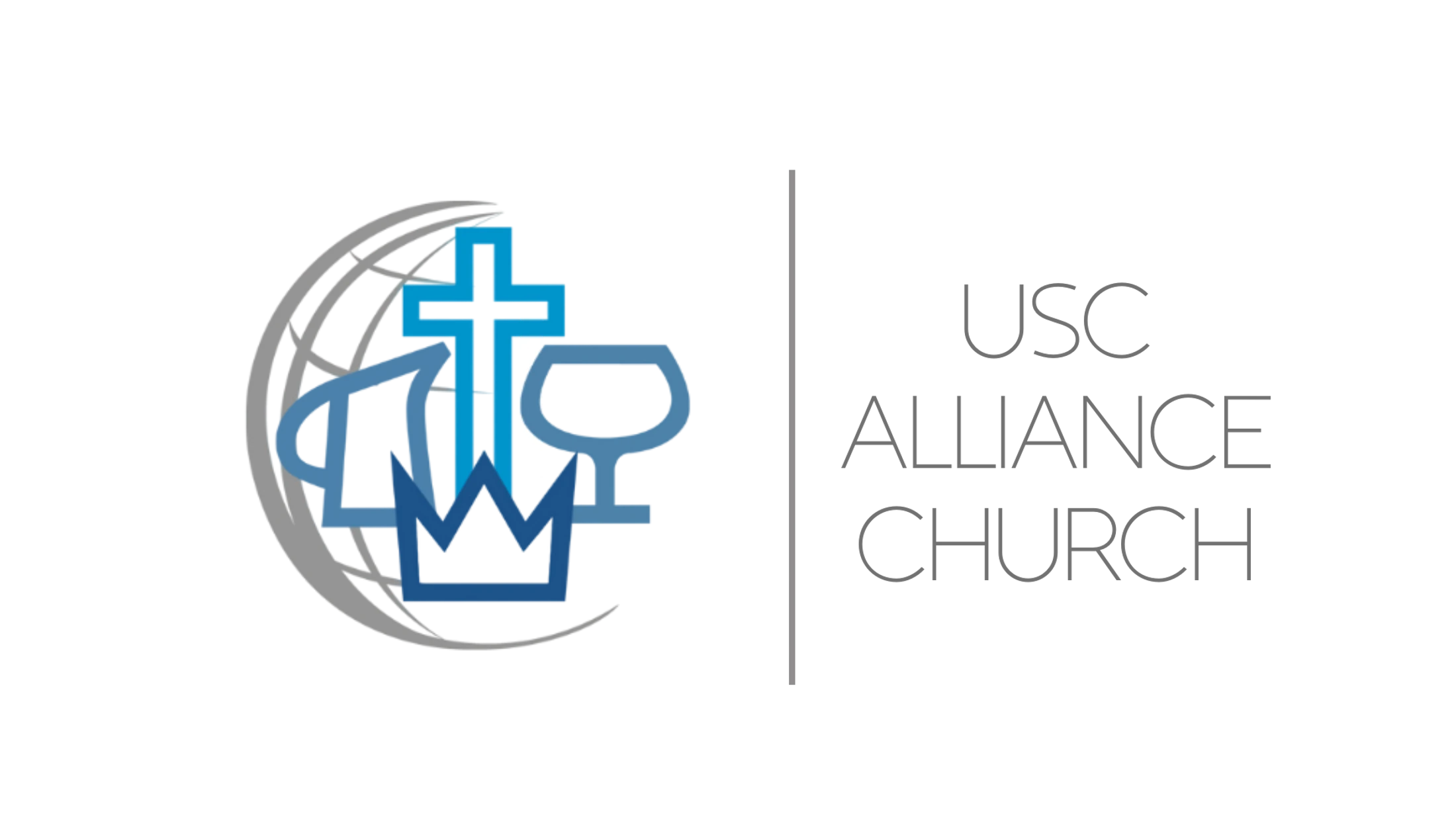Jesus Unfiltered – Good News of the Kingdom (Mark 1:14-20)
Published October 6, 2021

There’s nothing like receiving a personal invitation. It's a great feeling to know that someone thought of you, wants to include you, that your presence is important, that you are important to the person sending the invitation.
And think of how you feel when you discover you’re not invited… to a party, wedding, get-together, or to be on the team. It feels the opposite, like you were overlooked or forgotten, or worse, that you were not wanted. That you were somehow deficient or not as good as those who were invited.
On our journey through Mark’s gospel today, we’re going to witness the launch of Jesus’ public ministry in Galilee as he presents two different invitations, an invitation to enter his Kingdom and an invitation to expand his Kingdom.
Mark has set the stage for the ministry of Jesus.
John has announced his coming.
The Father and the Spirit have identified him as the long-promised deliverer.
He has faced off with Satan in the wilderness.
Now it’s time for Jesus to begin his public ministry in word and deed.
His public ministry begins, Mark tells us, with the end of John’s ministry.
After John was put in prison, Jesus went into Galilee (14a).
We’re not sure about the exact timeframe, but some think this was probably about six months after Jesus’ baptism and temptation in the wilderness.
John’s ministry has run its course. He’s now been arrested by Herod (something Mark will explain in more detail in chapter 6). So why mention this?
What’s the significance of John being arrested in the story-line of Jesus?
He’s the forerunner, remember, the messenger sent ahead of Jesus to prepare the way for him. So if John’s ministry is winding down, it makes sense that Jesus’ ministry would begin to ramp up.
But there’s more to it than timing. John’s ministry didn’t just predate Jesus’ ministry (in fact they probably overlapped about six months).He also prefigured what Jesus’ ministry would be like.
In the NIV it simply says, John was put in prison. But that is not the best translation. It would be more accurate to say, John was handed over (betrayed).
Mark doesn’t want us to miss this subtle connection of John’s fate with that of Jesus. John was handed over to Herod, just as Jesus will be handed over – betrayed (3:19) by Judas. John’s arrest and subsequent execution clearly foreshadows Jesus’ suffering and death on the cross.
This shows us again that the path of Jesus is a path of suffering.
I also should point out that this same expression is also used multiple times in connection with Jesus’ followers. You will be handed over to local councils… brother will betray brother to death, and a father his child (13:9, 12). It’s true.
The path of Jesus is a path of suffering.
From a human perspective, it might appear that Herod won. He finally got rid of his nemesis.
But in reality, John’s arrest was ordained by God as part of his plan to open the door for the expansion of Jesus’ ministry.
That’s where we now turn. Listen now as Jesus begins to proclaim the good news in the towns and villages of Galilee.
INVITATION TO ENTER THE KINGDOM OF GOD (14b-15)
‘The time has come,’ he said. ‘The kingdom of God is near. Repent and believe the good news’ (14b-15).
This is a decisive point in history, it’s the dawn of salvation.
Long have the Jews been waiting for the Messiah to come. They have set their hopes and faith on his arrival for centuries. Now the fullness of time has come (Galatians 4:4) and God has sent his Son into the world to proclaim the good news of God.

I was a paperboy growing up. Anyone else deliver papers? It was my first job. I loved bringing newspapers to people. They were glad to receive the news. I still remember being invited into people’s homes to warm up with a cup of hot chocolate and some cookies. Many of them gave me Christmas cards and gifts. It was a great experience.
My how the world has changed.
Today we’re inundated with fake news, false news, and error-ridden news. It’s nearly impossible to find a good source for accurate news. Everyone seems biased in one way or another. And so much of today’s news is dark and depressing.
But this news Jesus brings is the news of God! You won’t find a more reliable source for news than the God of Truth. And there is no better news than that which Jesus came to deliver.
It’s good news because it comes from God and leads to God.
So what is this good news of God Jesus came to proclaim?
Good news of the kingdom – the kingdom of God.
George Ladd defines the kingdom of God as the redemptive reign of God dynamically active to establish his rule among men, and that this Kingdom, which will appear as an apocalyptic act at the end of the age, has already come into human history in the person and mission of Jesus to overcome evil, to deliver men from its power, and to bring them into the blessings of God’s reign. The Kingdom of God involves two great moments: fulfillment within history and consummation at the end of history (George Eldon Ladd, The Presence of the Future: The eschatology of Biblical Realism. New York; Harper & Row, 1974, p. 218).
That may seem a little confusing (we’ll learn more about it along our journey), but Jesus’ listeners would have been familiar with the concept of God’s reign, and his proclamation of the Kingdom’s arrival would have evoked all sorts of images and hopes. The fact that Jesus will spend so much time explaining to people what the Kingdom of God is like (in parables, for example) suggests that their views were different from his own and needed correction.
So what does Jesus mean when he says, the Kingdom of God is near?
He’s talking about spatial nearness, not temporal nearness.
Those listening to him that day are very close to the Kingdom; it is nearby.
As one commentator puts it, In Jesus of Nazareth the Kingdom of God makes a personal appearance (Edwards).
The Kingdom is embodied in the person and message of Jesus Christ. In one sense, Mark summarizes the entirety of Jesus’ life and message in this single concept – the Kingdom of God.
But Jesus doesn’t proclaim this news merely for information’s sake. He proclaims this good news as an invitation, an invitation to enter into the Kingdom of God.
Access to the Kingdom of God is now open through Jesus Christ.
The fact is, we’re all born as subjects to the kingdom of darkness. We live under the tyranny of Satan and sin.
How do we escape?

Jesus spells it out.
Repent and believe the good news. Turn away from sin and independence from God, and turn to Jesus in full trust.
Repentance is used as the summary description of John’s message (1:4). He came preaching a baptism of repentance. Now Mark uses the same concept to summarize Jesus’ message.
Repent denotes that which we are called to turn away FROM (sin & independence).
Repentance precedes belief.
In order to believe in Jesus, we have to first turn away from our selfish independence.
Believe is the second part of Jesus’ message.
Believe denotes that which we are called to turn TOWARD. It’s not faith in faith, it is belief in the gospel that saves.
In other words, it is trust in Jesus Christ.
Several things to note. The terms repent and believe are in the present imperative, which means it is a call to a lifestyle.
He’s inviting people into a new way of life, not just a momentary act, a lifestyle of turning away from sin and of believing and following Jesus.
Also, it’s important to point out that repentance and belief cannot be applied selectively to certain areas of life and not to other areas. Instead, Jesus is laying claim to total allegiance.
This is good news.
Jesus came to proclaim freedom for the prisoners (Luke 4:18).
In the fullness of time he came to give his life a ransom for those held captive in the kingdom of darkness so they might be set free to enter into the Kingdom of God. Paul reminded the Colossian Christians of their deliverance, For he has rescued us from the dominion of darkness and brought us into the kingdom of the Son he loves, in whom we have redemption, the forgiveness of sins (Col 1:13,14).
The Kingdom of God is established in the hearts of all who believe.
Christ’s Kingdom is advancing right now, as sinners repent and come to faith in Jesus Christ and are transferred out of the kingdom of darkness into the Kingdom of the Son. To enter the Kingdom is to submit to his reign over your life and to seek the expression and honor of his Kingdom and righteousness. Will you repent and believe in Jesus right now?
Jesus invites those who accept the good news to be ambassadors and heralds of his Kingdom.
INVITATION TO EXPAND THE KINGDOM OF GOD (16-20)

As Jesus walked beside the Sea of Galilee, he saw Simon and his brother Andrew casting a net into the lake, for they were fishermen. “Come, follow me,” Jesus said, “and I will send you out to fish for people.” At once they left their nets and followed him.
When he had gone a little farther, he saw James son of Zebedee and his brother John in a boat, preparing their nets. Without delay he called them, and they left their father Zebedee in the boat with the hired men and followed him (16-20).
This is not their first meeting. If you read John 1, you discover these fishermen had met Jesus earlier. But now on this day he issues a call, and invitation, to follow him – a call of discipleship. Two things are involved in this invitation.
Know him and follow him.
Follow me. From all accounts, these four were ordinary, uneducated fishermen. But they did amazing things once their training was complete and Jesus went back to heaven. Their distinguishing mark was that they had been with Jesus (Acts 4:13).
So first and foremost, Jesus invites us to know him personally, to walk with him through life. That’s what it means to be a disciple.
You can’t follow Jesus if you don’t know who he is. So his invitation is to come alongside him and spend time with him. He invites you and me into that same kind of intimate, personal relationship. That’s what following him is about.
Be transformed by him.
I will make you (something, someone new). Having rescued them from the dominion of darkness, sin, and death (Col. 1:13), the King wanted to employ them in his service. That was always his plan.
As the disciples followed Jesus and spent time with him, he transformed them – he changed them.
We’ll see how frail and human they were, just like we are. They failed, they fumbled the ball so many times. But as they spent time with him, he reshaped their minds and their hearts.
He remade them.
If you know Jesus, he invites you to be a herald of good news, to extend the invitation to those in darkness.
But it’s more than an invitation, it is a calling (20), a privilege.
Even further, it is a responsibility. How could we possibly hoard such good news? Why wouldn’t we proclaim this good news to everyone we meet?
So how do we accept this invitation to be part of Jesus’ team?
Look at how they responded.
Simon and Andrew…at once left their nets (16-18). James and John…left their father Zebedee (19-20).

Discipleship is first and foremost surrender.
I mentioned earlier that repentance and belief are lifestyles. In order to follow Jesus, we must first surrender control of our lives. We have to turn the wheel over to Jesus, to put him in the driver’s seat.
From what we know, these four fishermen had grown up in the family fishing business. It’s all they’d known and most likely all they’d ever imagined for themselves. Fishing wasn’t just an occupation, it was their identity.
So when Jesus called them to follow him, they had a decision to make.
To take up after him meant walking away from all they’d known and were comfortable with, their very livelihood. They even had to leave family behind.
That’s the call to discipleship.
It’s the same for us today.
Jesus calls us to serve in his Kingdom.
The first step of that new lifestyle is surrender, a decisive act of the will where you say, not my will but your will be done in my life. You consciously, intentionally, turn over the reins of your life to Jesus.
For them, that required walking away from their jobs and families. The details will be different for you, but the surrender is the same.
You may feel completely inadequate, ill-equipped, and perhaps unsure where to even begin. That’s okay. I’m sure that’s how those four fishermen felt that day too.
But listen.
The promise Jesus made to those ordinary fishermen along the shores of the Sea of Galilee that day still applies to us today.
As you surrender everything to follow him, Jesus will transform you into a fisher of men.
He will empower you by his Spirit to boldly proclaim the good news of the Kingdom to people in your neighborhood, where you work or go to school, in your family, and who knows, maybe even in far-away places.
Truth is, it’s as simple as loving your neighbor as yourself and allowing the Holy Spirit to work as you display radically ordinary hospitality to those living near you. Will you say yes to his invitation today?
Blog post adapted from the message by the same name delivered on Sunday, October 3, 2021.
Sources Used
The NIV Application Commentary, David E. Garland.
The Pillar New Testament Commentary Series: The Gospel According to Mark, James R. Edwards.
Believer’s Church Commentary: Mark, Elmer A. Martens & Willard M. Swartley, editors.
Let’s Study Mark, Sinclair B. Ferguson.
Reformed Expository Commentary: Luke, Volume 1: Chapters 1-12.
The Harmony of the Gospels, Robert L. Thomas and Stanley N. Gundry.
